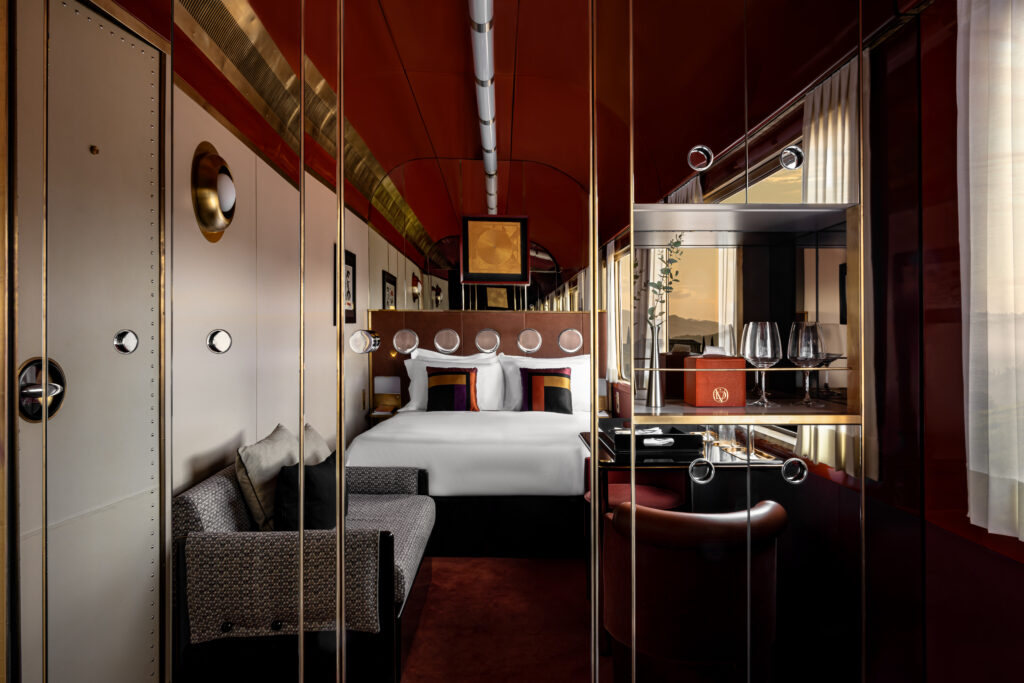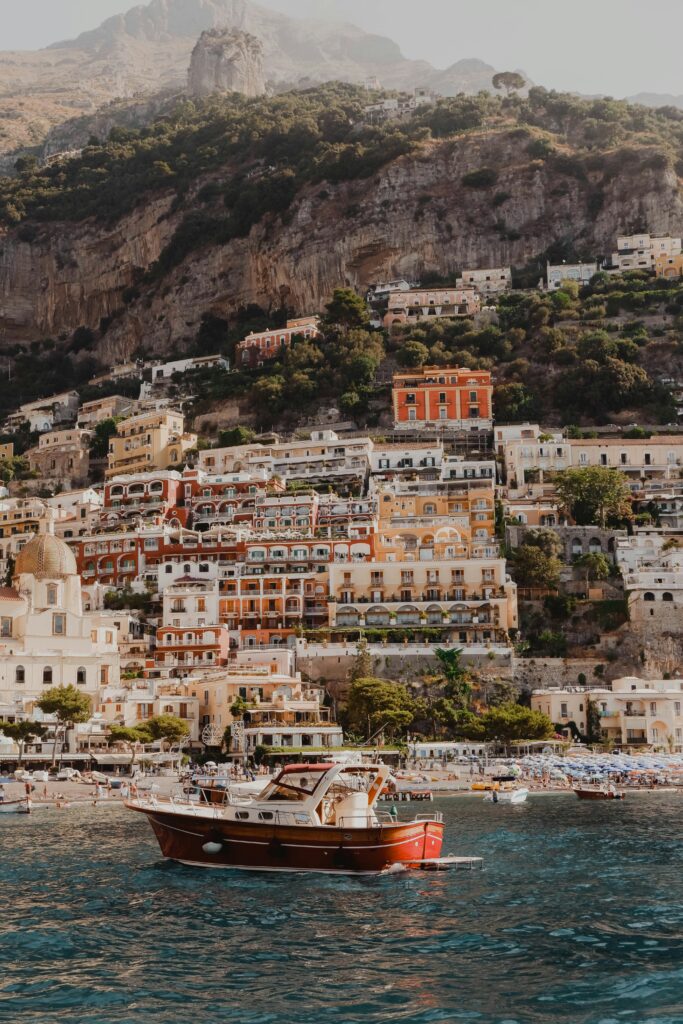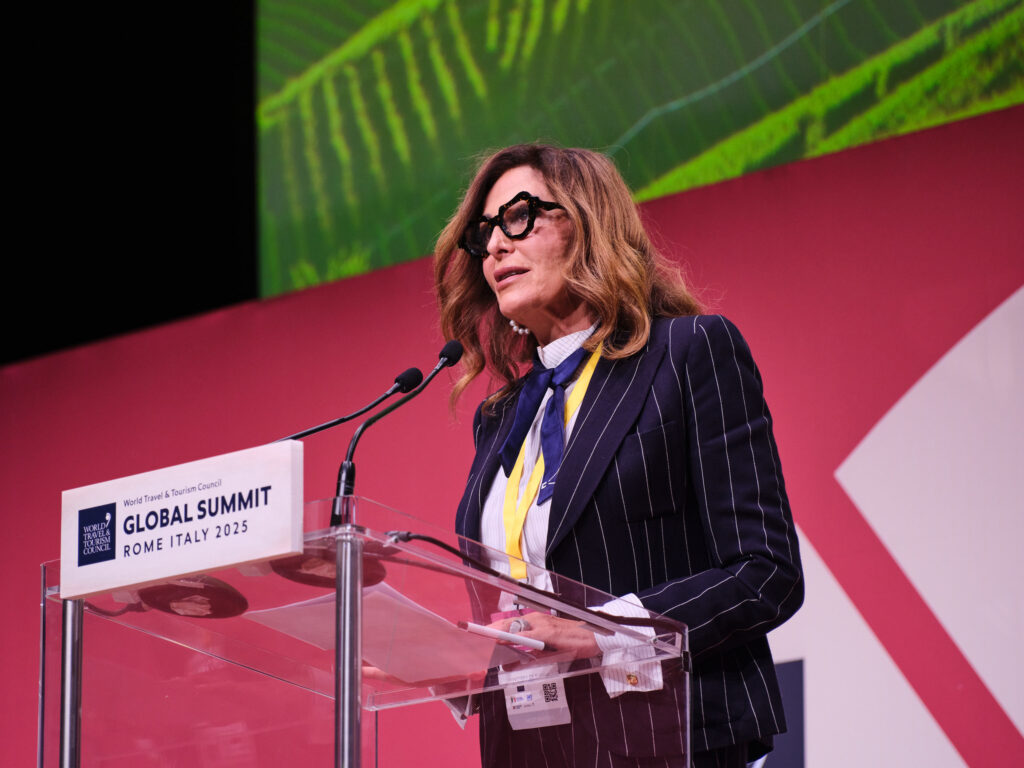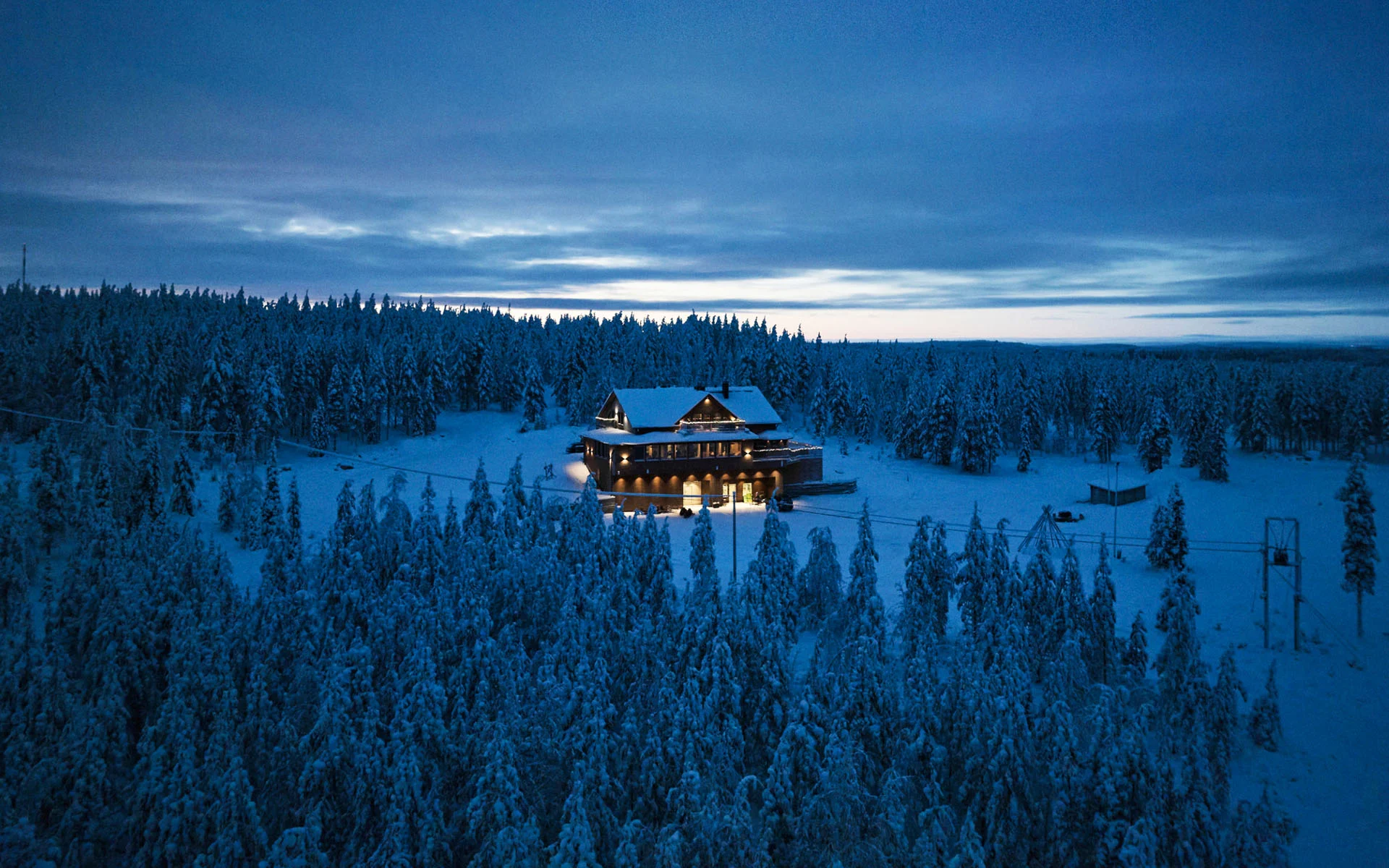Giorgia Meloni’s strategy for supercharging Italian tourism in 2026 and beyond
At the global World Travel & Tourism Council Summit in Rome, Italian Prime Minister Giorgia Meloni and Tourism Minister, Daniela Santanchè, shared their plans for turning tourism into a year-round economic engine. Robbie Hodges reports
Italy: land of honey-steeped film and television – from Fellini to The White Lotus – Catholic pilgrimage, epicurean hilltop villages, both maximalist designer labels and crumbling sites of antiquity. This abundance of riches and the country's deeply entrenched place in the global imagination are both a blessing and burden for citizens. Tourism accounts for 13% of Italy’s GDP, yet the strain is growing, Giorgia Meloni warned in her opening address at the World Travel & Tourism Council Summit in Rome.
“Today, Italy ranks first in Europe for regional tourism competitiveness and second in Europe for tourist arrivals,” she said in a decisive opening address. “With nearly 58 million international arrivals, we rank fifth globally among the world’s most visited countries—and we are set to climb even higher.”
Along with her Tourism Minister, Daniela Santanchè, Meloni set out how Italy is innovating a new approach to tourism – one that combats overtourism and provides year-round income to communities and small-to-medium-sized businesses reliant on tourist spend. Per Meloni’s speech, 95% of visitors to Italy visit just 4% of the country – pooling around famous coordinates where tourism has become heavily industrialised. And so the Italian government’s strategy for the years ahead is about dispersion; of people geographically and periodically.
Rome itself offers a vivid illustration of that first point – the redistribution of tourist flows – as the suited, briefcase-toting WTTC delegates joined the hundreds of thousands of pilgrims flying into the city for papal blessings on its Jubilee year; a year precipitated by €4.3 billion of infrastructural works and urban redesign intended to support the anticipated influx.
Intermodal Movements
With this in mind, the Italian government is pouring investment into intermodal travel experiences that will enable visitors to hop from plane to boat to rail to car, introducing visitors to villages and towns not otherwise on their radar. Meloni mentioned cruise in passing, but it’s clear that the romance of rail is really where Italy is concentrating its efforts – orchestrating a movement that’s as whimsical and alluring as it is practical and necessary.
It’s a hot topic in Europe, where budget sleepers such as Nightjet and ultra-luxe experiences from the likes of Belmond, are tapping both ends of the market. But Italy is delivering rail with panache; weaving routes into the country’s cultural fabric in such a way that makes the transport mode synonymous with a certain Dolce Vita lifestyle. Case in point: the aptly titled La Dolce Vita Orient Express, which set tongues wagging upon launch in 2025 with its 1960s-inspired cabin interiors and stylish white glove approach to onboard service.
But that’s just the beginning. In a seemingly off-the-cuff final announcement, Paolo Barletta, CEO of Arsenale Group – one of the orchestrators behind La Dolce Vita Orient Express – took to the stage and announced to WTTC delegates the acquisition of Golden Eagle Luxury Trains, a UK-based operator with a fleet of five trains coursing across Europe and Asia. One of their trains is already being renovated at Arsenale’s Puglia factory, said Barletta, teasing a potential successor to the group’s 2025 runaway success story.
Engineering the eternal summer
But chugging tourists out of overcrowded hotspots is only half the equation when it comes to dispersing tourist spend. The other half concerns adapting Italy’s offering to ensure year-round relevance, beyond the sun and sea-soaked summers that drown the Amalfi Coast, Sicily and increasingly Puglia each year.
“I don’t want to talk about seasons anymore,” demanded tourism minister, Daniela Santanchè, in a conversation with Ahmed Al-Khateeb, Saudi Arabia's Minister of Tourism, and Spain's Secretary of State for Tourism, Rosario Sánchez Grau, that was centred around how nations can collaboratively share the benefits and shoulder the challenges of tourism. “I don’t want to talk about seasonality. We have to support companies to remain open throughout the year. Tourists might like to extend their stays in Italy but often they simply don’t have access to accommodation or restaurants."
This emphasis on what Santanchè calls “deseasonality” was echoed by Meloni who acknowledged the event and experience economy as a valuable tool in shifting perceptions of certain locations. The years ahead will be big business for Italy. “We are preparing for the Milan-Cortina Olympics and the Mediterranean Games of 2026, as well as the European Football Championships of 2032,” she explained. “These events will bring millions more tourists to Italy, whom we want to offer travel experiences, and an image of Italy, more extraordinary than they expect.”
Meloni and co. mightn’t try so hard to engineer deseasonality. It would appear climate change is doing a fine job. The latest data from Skyscanner reports that 71% of global travellers are considering or planning a mountain escape for summer or autumn 2026, with hotel bookings using the “Room with a mountain view” filter up 103% globally YoY.
From summer flings to lifelong careers
And the other key means by which Meloni’s taskforce will facilitate this great dispersion of tourists is by reframing jobs – namely, as careers. That is, jobs with longevity, purpose and growth opportunities, rather than fleeting summer flings. How to plug what the WTTC forecasts will be a 43 million shortfall in travel and tourism staff by 2045?
Meloni started with a rundown of the tactics and measures her government had already taken to make tourism a more viable career prospect for Italians: a list that included investing in upskilling; making tips tax-free; allocating funds to supplement night and holiday shifts; and investing in staff housing to improve workers’ quality of life and make careers more appealing.
“We reformed important areas – such as tourist guides, a uniquely Italian asset that needed protection and promotion. We fought illegal practices with determination to bring the hidden economy to light, defend honest operators, and provide greater guarantees and higher quality for tourists.
“We were pioneers in Europe in regulating fake online reviews,” she continued, “an odious phenomenon that harms everyone – tourists, businesses and workers. We are leveraging resources from the National Recovery and Resilience Plan to upgrade tourism infrastructure, helping especially small and medium-sized enterprises – an essential pillar of the Italian economy.”
Santanchè reinforced this focus on the SMEs and family-run enterprises that keep Italy's tourism sector vibrant and interesting. While she stopped short of commenting directly on employment, she was unambiguous in her support for the privatisation of public sites, citing the Pantheon in Rome as a model for how ticketed entry can support conservation. Her comments came amid heated debate over similar measures at the Trevi Fountain, just a few kilometres away, where a recently implemented 400-person capacity queuing system sees tourists snake back and forth from just after sunrise to well after sunset.
Looking forward
“We are a people hungry for great challenges, who know how to amaze the world because we are still able to be amazed ourselves,” Meloni concluded, “seeing every day as a blank canvas on which to paint a new masterpiece. And we aim to be that masterpiece: the privileged destination for all those who seek a dream—between history and imagination, between antiquity and the future.”
Whether that vision materialises remains to be seen. The grand dispersion championed by Meloni and Santanchè is no quick fix, but a gradual strategy designed for long-tail gains that may outlast their term in office (ending in 2027 at the latest). This three-pronged blueprint to counter overtourism offers a template for others to follow — an invitation for nations everywhere to craft their own "La Grande Bellezza", designer handbags and HBO series notwithstanding.




























